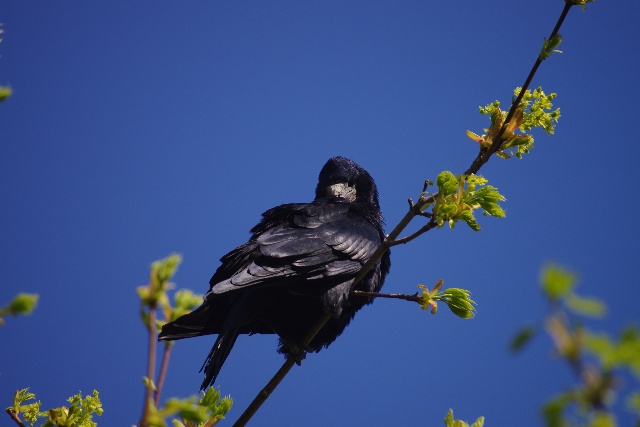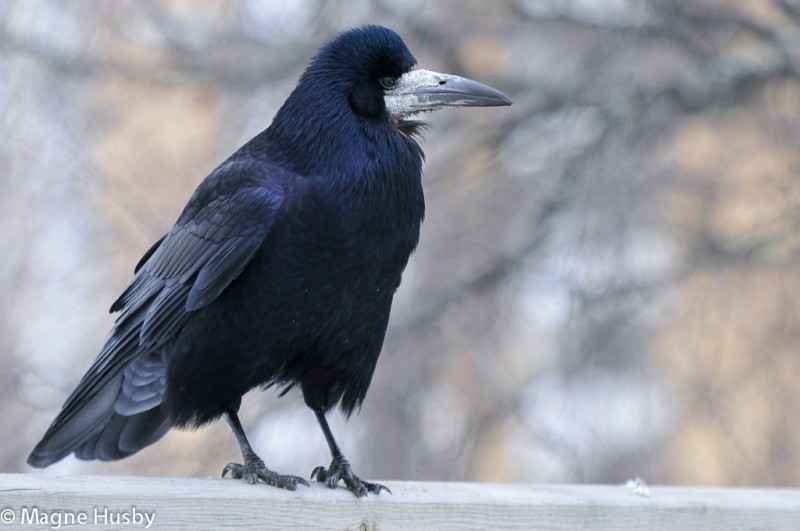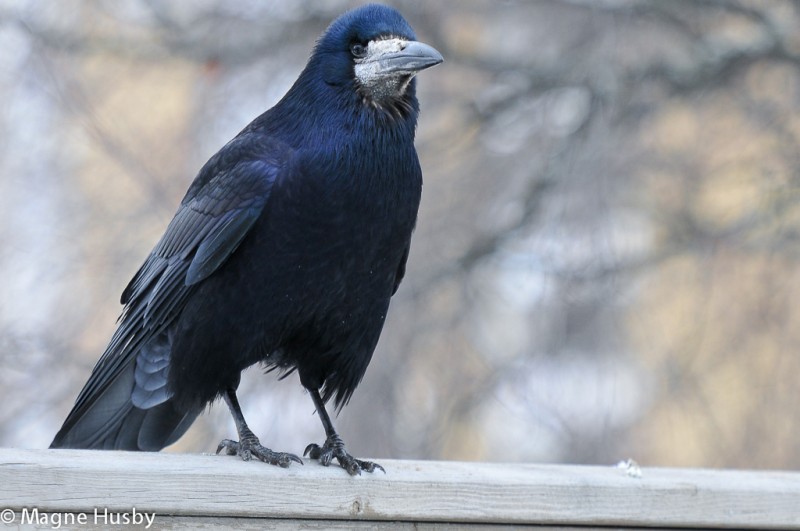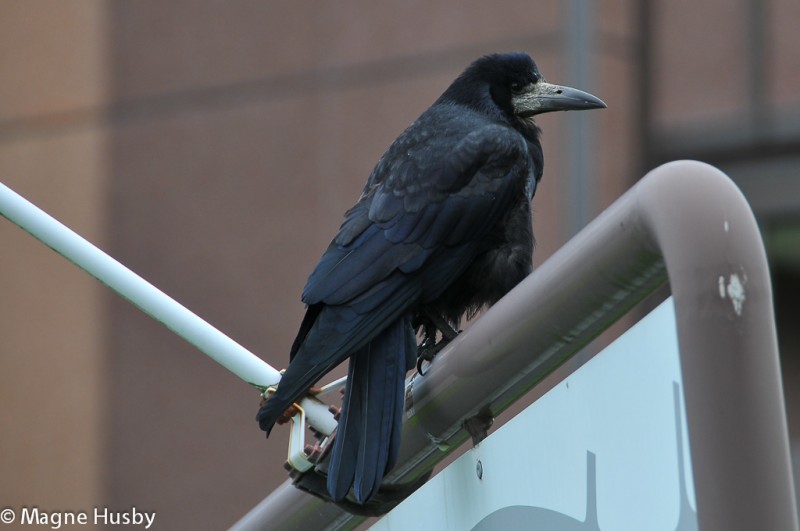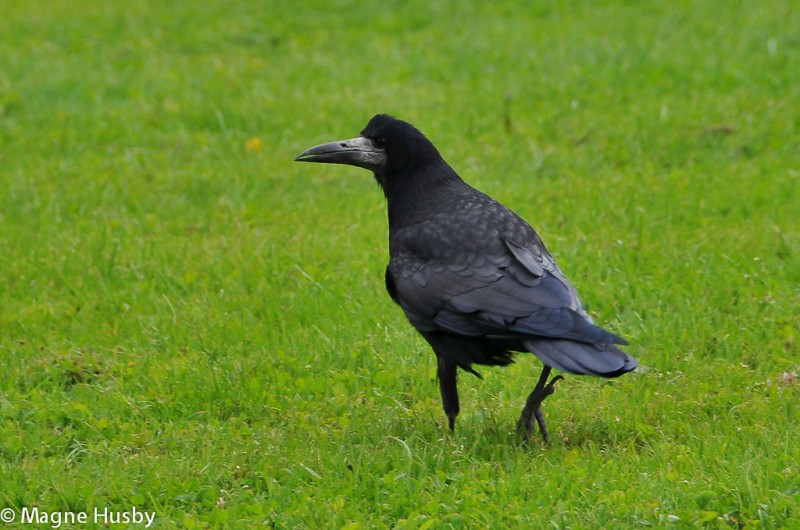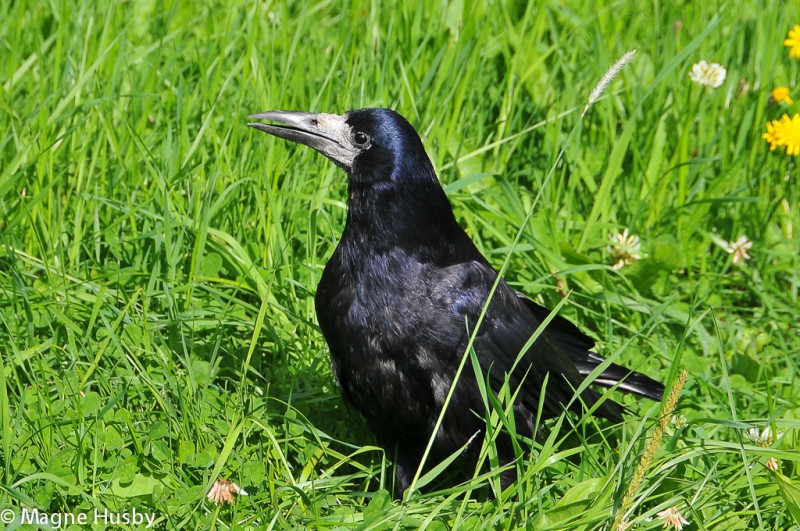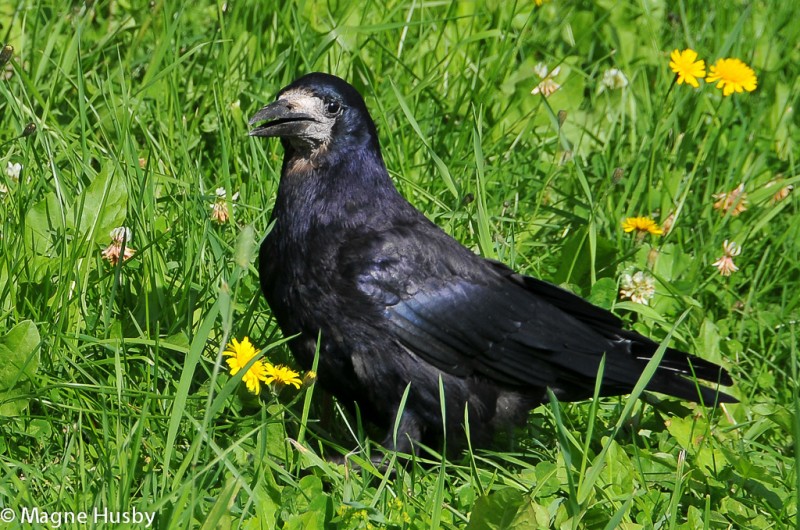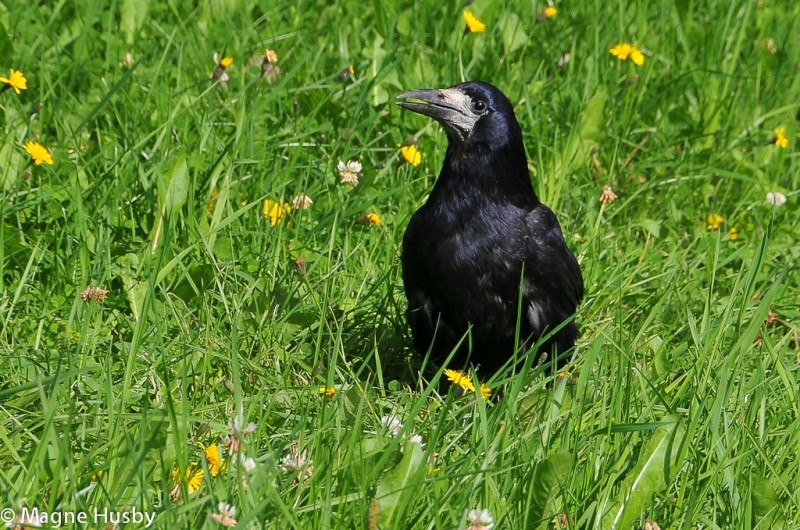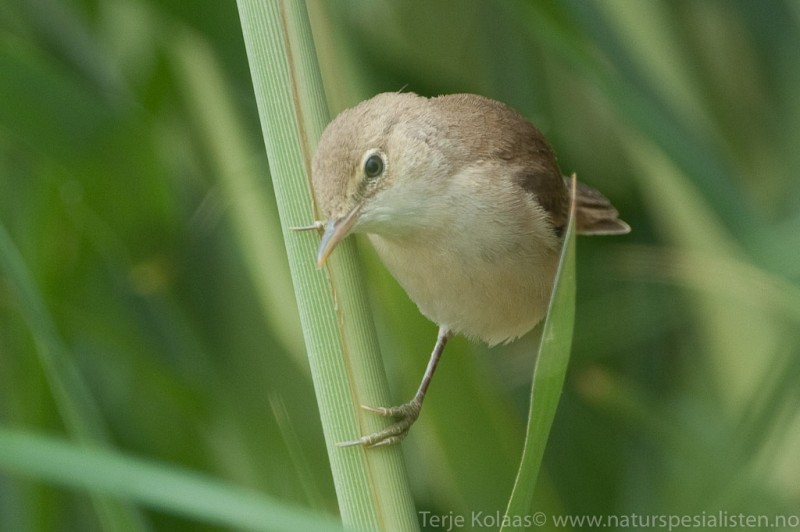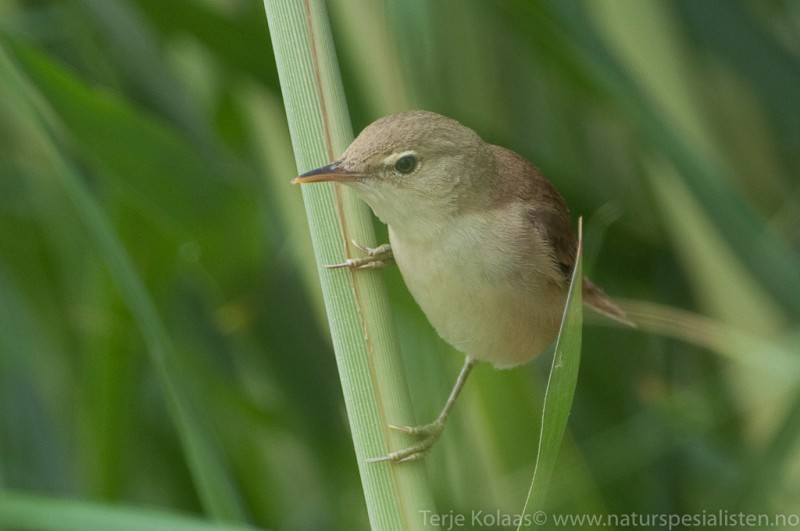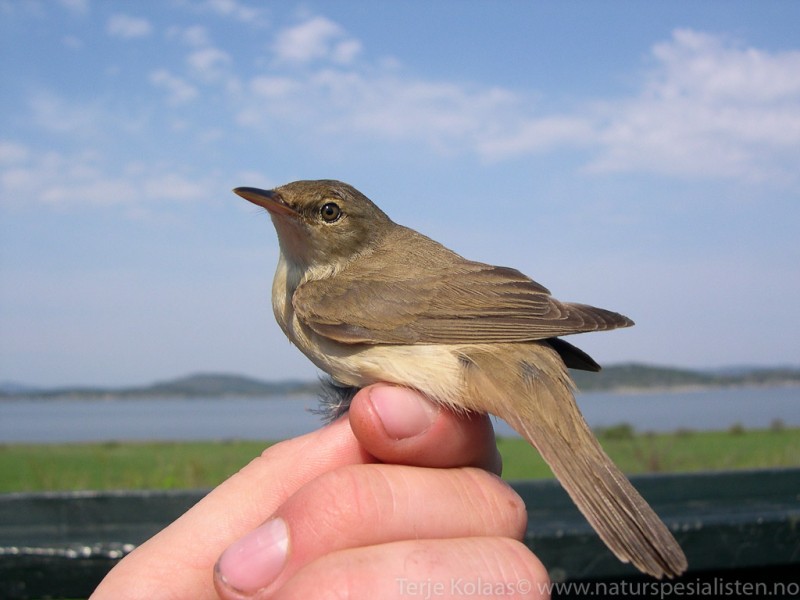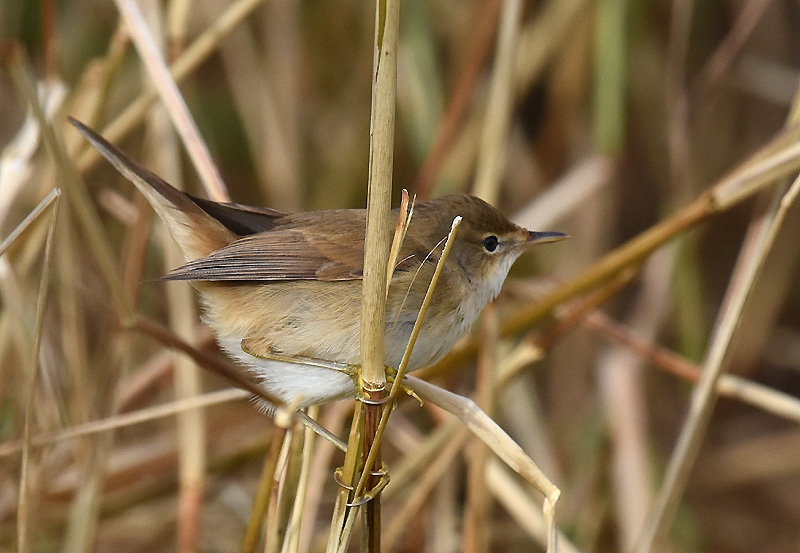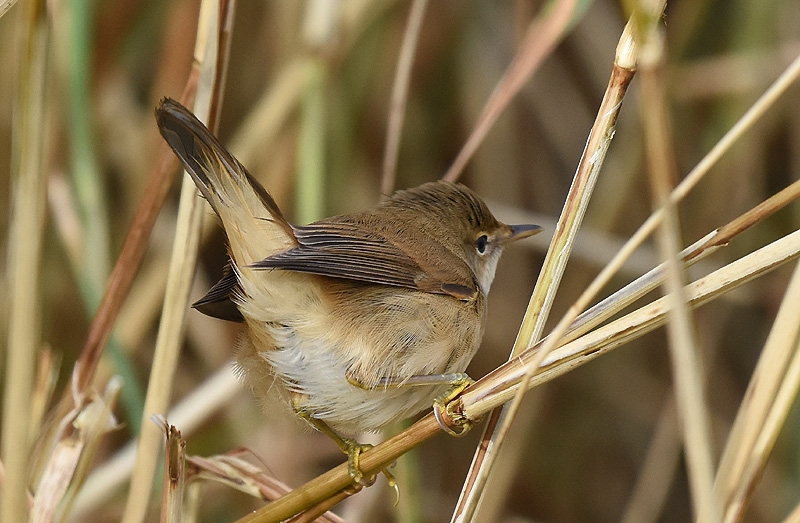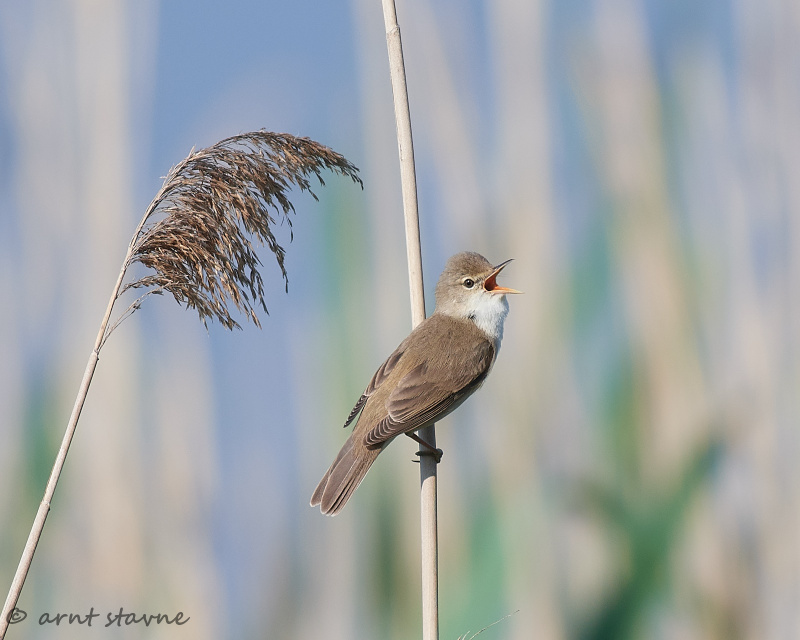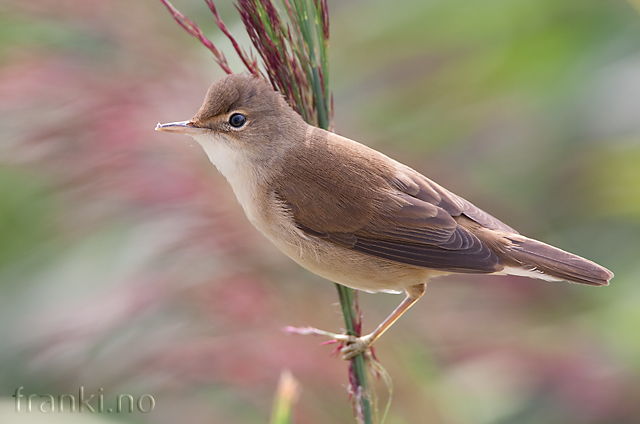Rook (Corvus frugilegus)
Reed Warbler (Acrocephalus scirpaceus)
An all shiny black crow with diagnostic bare, pale grey base of bill, and "baggy trousers". Juveniles lacks bare bill base and are difficult to separate from Carrion Crow. Young Rooks however, has a steeper forehead and more conical bill with less curved culmen. Tail is more rounded and base of wings more narrow. Flight action includes less gliding than Carrion Crow, and individuals are more spread when a flock flies.
Sound:Makes similar caws as Carrion Crow, but is harsher, softer, flatter with less rolling r's. Also gives a varied song of soft gurgling and rattling sounds, interwoven with calls at breeding ground.
Contact call:
Distribution:
Wikipedia: map (se also Xeno-canto below)
Ecology:Birdlife ecology
Links:
Observation.org Latest observations
Image search Flickr NB! May give other species
CCPlain and characterless warbler with secretive behaviour. Larger than Sedge Warbler, with larger wings, broader tail and tail-base. Very similar to Marsh Warbler, and very hard to distinguish by plumage alone. Rump of Reed warbler warm rufous brown, warm buff flanks (yellowish tinge in Marsh Warbler), and slightly longer and more pointed bill. Differs from Blyth's Reed Warbler by longer primary projection, yellowish lower mandible and paler legs. Juveniles especially hard to identify, because of even fainter plumage field marks. Attached to reed beds.
Sound:By far easiest to identify by song: Characteristic, almost metric and even rhythm, very different from Sedge Warbler. Squeaky timbre with many, almost bizarre, harmonics. Phrases generally repeated 2-3 times. Alarm call a harsh, dry and rolling "kraaaat".
Song:
Distribution:
Wikipedia: map (se also Xeno-canto below)
Ecology:Birdlife ecology
Links:
Observation.org Latest observations
Image search Flickr NB! May give other species
CC
 English
English Albanian
Albanian
 Armenian
Armenian
 Bulgarian
Bulgarian
 Catalan
Catalan
 Croatian
Croatian
 Czech
Czech
 Danish
Danish
 Dutch
Dutch
 Finnish
Finnish
 French
French
 Georgian
Georgian
 German
German
 Greek
Greek
 Hungarian
Hungarian
 Italian
Italian
 Latvian
Latvian
 Lithuanian
Lithuanian
 Macedonian
Macedonian
 Norwegian
Norwegian
 Polish
Polish
 Portuguese
Portuguese
 Romanian
Romanian
 Russian
Russian
 Sami : Lule sami
Sami : Lule sami
 Sami : North sami
Sami : North sami
 Sami : South sami
Sami : South sami
 Scientific names
Scientific names
 Serbian
Serbian
 Spanish
Spanish
 Swedish
Swedish
 Ukrainian
Ukrainian


